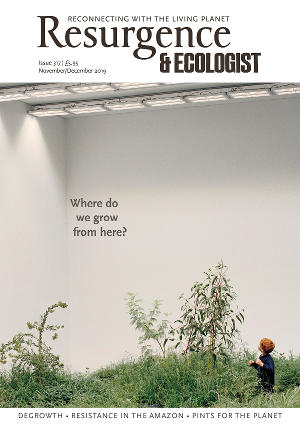Living well at others’ expense is the modus operandi of modern capitalist societies. As this book’s title foretells, the author offers a view of the current world order in which the global north controls economic and political systems and receives the benefits of development, whilst the global south pays the price.
Stephan Lessenich explains how the daily dynamics of northern and southern countries are inseparably linked. Northern states and citizens satisfy their thirst for resources and commodities by impinging on the environmental and social boundaries of their southern counterparts, a process Lessenich calls “externalization”, “exploiting the resources of others, passing on costs to them, appropriating the profits, and promoting self-interest while obstructing or even preventing the progress of others”. Meanwhile, southern countries, prey to the rules imposed by the north, intensively exploit their own natural and human resources to try to keep up with the pace of demand.
Using ordinary language and clear examples, Living Well at Others’ Expense unveils the social dynamics of the global village as a “zero-sum game”. The high living standards of some are only sustainable through the suffering and degradation of most others – including non-human others.
Admittedly, many intellectuals have for decades been describing such an uneven and unfair distribution of wealth in the contemporary world. Even in the 1950s, the idea of the resource curse was popular among economists to indicate that countries rich in biodiversity are ‘cursed’ to experience war, poverty and exploitation; and since the 1980s, grassroots movements throughout the world have denounced the injustice by which the powerful enjoy ‘environmental goods’ while the marginalised cope with ‘environmental bads’.
Nevertheless, aside from exploring the northern exploitation of the south, Lessenich covers a topic that intellectuals have discussed much less: the societal denial of the unfair global allocation of opportunity. The American Dream and its associated idea of meritocracy currently dominate the universal collective consciousness, making us believe, first, that ‘successful’ individuals owe their privileges to hard work; and second, that anyone who works hard enough can achieve those privileges. However, as Lessenich shows, privilege is mostly inherited, either directly within a family or structurally within a nation, and hard work may not even come into the equation.
More than a decade ago Colombian writer Héctor Abad Faciolince stated: “Without nutrition, it is not even true that we all are born equal, because [malnourished] children come to the world already with a disadvantage.” Lessenich’s book is a timely reminder of such injustice. It is also a clear description of contemporary society, in which some have privileges and live well because others lack opportunities and resources. Living Well at Others’ Expense exposes the vacuous idea that we all can succeed if we work hard at it.
I have worked for over a decade with rural communities in the global south, so Lessenich’s insights are unsurprising to me. Yet, despite such close contact with injustice, I tend to forget that my own pleasures often come at the cost of suffering – of people and Nature. Therefore, this book is an extraordinary nudge that if we are not part of the solution, we are part of the problem.








